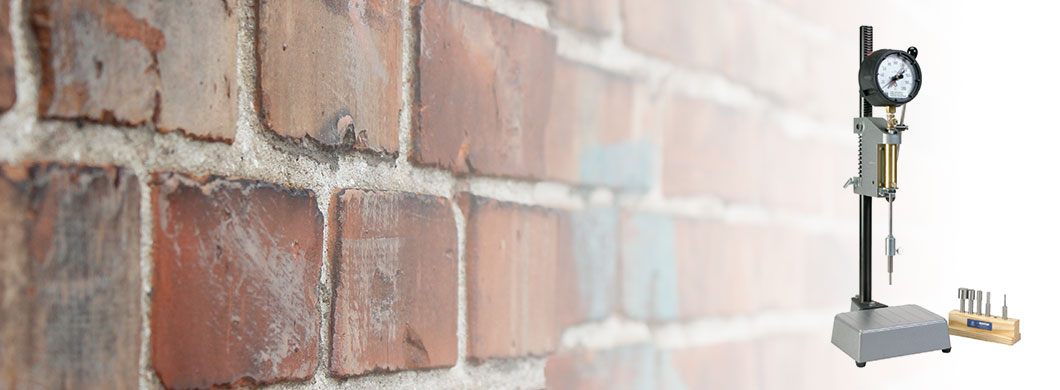Types of Mortar Testing and When They're Necessary
Jun 21, 2019
Several different tests are needed to estimate the stability and strength of a structure, from the soil it will stand on to the bricks or concrete that will form it. But what about mortar, the material that binds it all together? There are a variety of ways to perform mortar testing, many of which are similar to how you would test aggregates, concrete or cement.
Is Mortar Testing Necessary?
While there are ASTM methods specifically designed for masonry mortar testing, there is not a code requirement for testing mortar. Neither the International Building Code (IBC) nor the Masonry Building Code call for mortar testing on job sites or in labs. Some specifiers will still call for mortar strength testing, so it can be performed on a case-by-case basis. Mortar may only play a small part in contributing to structural capacity, but it's still important to determine whether it meets the physical property requirements of a project, including strength.
Types of Mortar Testing
There are several tests that can be performed on both plastic and hardened mortar to determine ideal mix ratios and strength. The tests listed below are a high-level overview, so be sure to consult ASTM C 780, which outlines the specifics of each, to help you learn more about a mortar sample's physical properties.
Air Content
Air content tests are commonly specified for concrete and cement in areas that are prone to frost — they can also be specified for mortar. Repetitive tests using pressure meters or "roll-o-meters" help determine if air content levels change due to mixing consistency and mixing time in order to find the ideal level of air content both in the field and in the lab.
Board Life
Board life is an especially crucial form of mortar testing because it describes the time frame of usability for mortar after it's removed from a mixer and placed on a mortarboard. Mortar begins to lose moisture and stiffen once it's in open air, so it needs to be placed quickly to ensure it bonds properly. While time frame determination is important, this test also reveals whether mortar will be acceptable for use once completely hardened — if it's too stiff, it won't work.
Compressive Strength
Compressive strength tests are performed on mortar once it has hardened, and can help determine the load a sample will be able to bear. These tests are better suited to a laboratory since field testing may indicate less approximate mortar strengths.
Consistency
Consistency testing helps identify variations between batches of mortar mix, both in mix materials and mix time. Mortar testing equipment, like a mortar penetrometer, is generally used to determine consistency based on the depth it can penetrate into the mortar sample. While inconsistent batches don't indicate that the materials used are improper, they can suggest that poor control was exercised during mortar batching and mixing.
Mortar-Aggregate Ratio
This test helps determine whether cement, sand and water are added properly and consistently to each batch of mortar, a bit like the consistency test. But, while the tests might be similar, mortar-aggregate ratio testing is performed solely in a laboratory, after mortar mix samples are obtained from a job site and sent in to be measured.
Water Retention
Water retention tests measure the plastic life of mortar. The longer the plastic life, the greater the amount of time a mason has to lay and adjust the mortar/masonry unit before the mortar hardens. These tests are performed in a laboratory.
Find Mortar Testing Equipment and More at Certified MTP
On top of mortar testing tools, Certified Material Testing Products carries several kinds of cement testing equipment to help you find the optimal mix for any project. Browse our cement and aggregate testing equipment today to outfit your testing laboratory or job site with all the necessary tools to create strong, consistent materials.

